

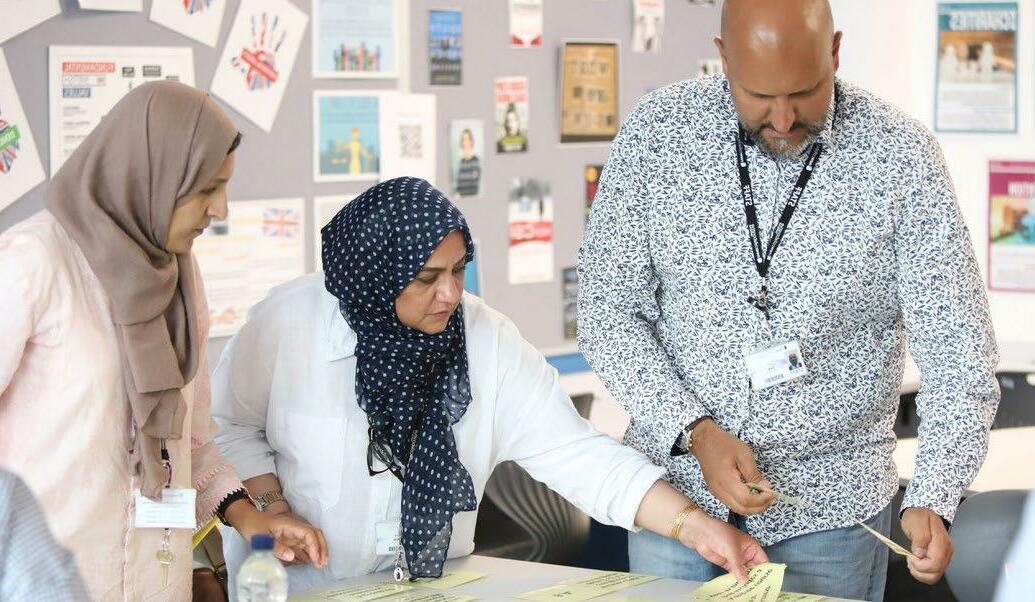
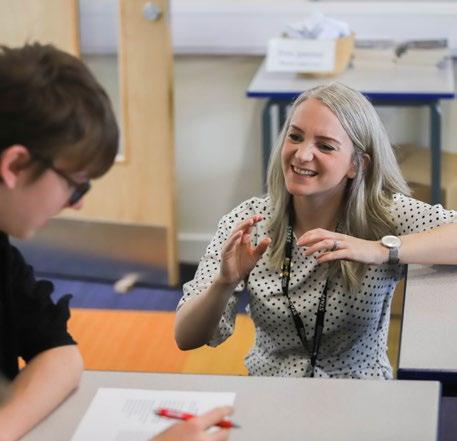


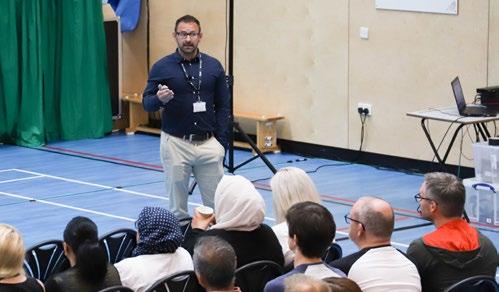


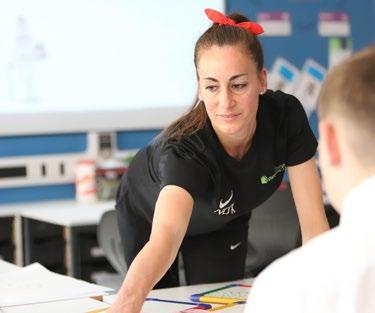




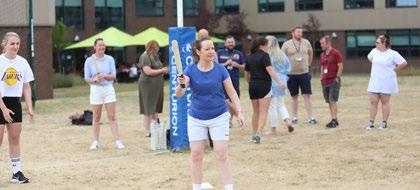
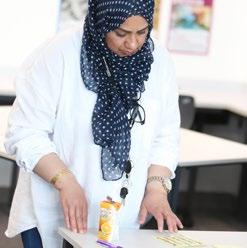





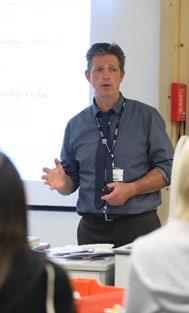


INTRODUCTION OUR VISION
VALUES
DEVELOPING OUR PEOPLE STRATEGY 2022-2025


OUR PEOPLE STRATEGY
TRUST GOVERNANCE
contents 04 05 05 07 09 24

























DEVELOPING OUR PEOPLE STRATEGY 2022-2025


OUR PEOPLE STRATEGY
TRUST GOVERNANCE
contents 04 05 05 07 09 24
Our three-year People Strategy, commencing September 2022, will help the Trust achieve its over-arching strategic priorities, ensuring the right people are in place to provide the relevant experiences and opportunities, whilst at the same time delivering the outcomes we desire. The world is changing fast, and our People Strategy is designed to be future-proofed and ready for the unexpected.

There has never been a more opportune time to celebrate our most important and influential assets, our people.
Our People Strategy outlines how we intend to:
• recruit and retain great people

• prioritise professional development at all levels
• focus on employee engagement
• manage talent by effective succession planning
• further develop a collaborative learning culture
• promote health and wellbeing in order to create a healthy workplace.
Focusing on the above foundations, it is our intention to make the Trust stronger, more agile and more cutting edge, leaving us better able to respond to the ever-changing environment.
Our People Strategy is less about structure, it’s about relationships, learning, support and ultimately increasing opportunities for our staff. It will allow us to maintain a family
of schools and colleges that pride themselves on recruiting and proactively developing and retaining great people, through putting staff at the heart of everything we do.
We will make our schools and colleges great places to work and become talent architects at the same time.
“Our colleges and schools will make a significant difference to the lives of young people. As a result, together we will make a positive contribution to social mobility.”
Creating an environment that makes people want to join, and to stay, will ultimately benefit our students and the wider Trust. Students who have an outstanding teacher will benefit enormously, thrive and flourish, and will be fully equipped for their next stages in life.
Recruiting, developing and retaining great staff will result in strong outcomes and experiences for our students.
our values
care
TO BE CONSIDERATE OF OTHERS & THEIR NEEDS
TO HAVE HIGH EXPECTATIONS OF OURSELVES & EACH OTHER
Easy,
Our People Strategy is underpinned by the Trust’s five core values, which characterise the way we seek to work. Our People Strategy will ensure:
• Staff first culture
• Wellbeing Charter
• Wellbeing Co-ordinators
• Workload reduction
• Time off in lieu (TOIL)
• No meetings after college (where possible)
• Flexible working requests considered
• Employee Assistance Programme (EAP)


• Early Career Teacher (ECT framework remission, mentor)
• Staff voice
• Staff surveys
• Strategic intentions – social mobility
• Curriculum intent
• Intelligent accountability
• College and school SAR/QUIPs/reviews
• APR process – performance and values/behaviours driven
• Upfront PEERS* goal setting (college, school and personal)
• Frequent learning walks
• QA cycle including subject deep dives
• Distributed leadership – delegated responsibility
• Whole college/school reviews
Results analysis
APR feedback
New staff 2/3 months, 5 and 6 months reviews
New staff coached lesson observation
Developmental learning walk feedback
Staff voice
SLT open door policy and accessibility
• Layered CPD programme (Trust, college, school and individual)
• Evidence-informed CPD
• Magpie days - opportunity to spend a day in industry or at another educational provider
ECT mentoring
Leadership training (NPQ and Middle Leaders training)
Individualised professional development plans
Coaching
Coached lesson observations
Apprenticeships to support staff development

Working groups
Equality & Diversity (E&D) committee
Health & Safety (H&S) committee
Sustainability committee
Wellbeing day
Subject collaboration meetings/days
Exam moderation meetings
Curriculum development (subject collaboration meetings)
Staff bulletin weekly
Whole college/school reviews

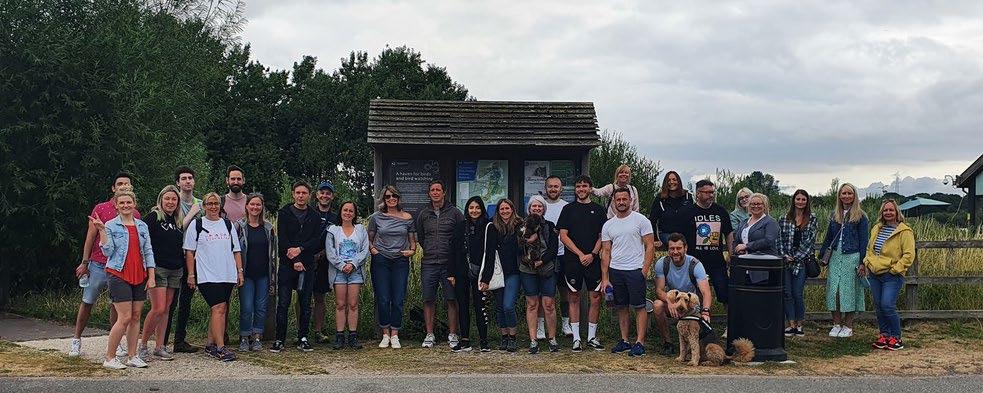

Our People Strategy will accompany the Trust’s three-year Strategic Plan, helping us to achieve our strategic goals. It is owned and delivered by Trust leaders, who will play a key role in delivering its planned outcomes. The Trust HR function will assist leaders throughout the strategy in order to ensure a consistent approach. HR will be involved in every aspect of recruiting, retaining and developing our staff.
Every student deserves an outstanding teacher. This People Strategy will help us to recruit, retain and develop the very best teachers, providing our students with the best education possible. A high quality education will open doors and ultimately make a significant difference to their future lives. The Trust’s People Strategy will put staff at the heart of everything we do, whilst at the same time helping shape Trust leaders into becoming talent architects.
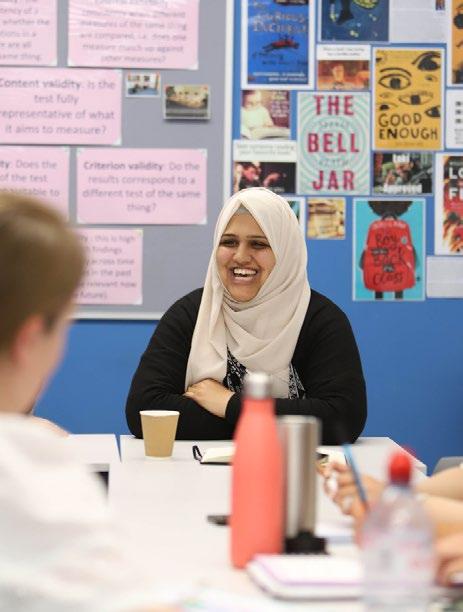


Together, we will make a positive contribution to social mobility.
We will make a significant difference to the lives of young people.
We will provide an outstanding, consistent experience through collaboration.
Become the employer of choice by further enhancing the Trust’s reputation.
•Publish and actively market staff survey results.
•Continue to develop the Trust’s brand on a national scale via planned marketing activities.
•Further develop the employer of choice section on the Trust website.
•Ensure the vacancy section of the website provides relevant and useful information for applicants.
•Continue to promote the Trust Wellbeing Charter.
•Further enhance staff voice engagement activities to involve employees in decision-making.
•Increase number of applicants applying for vacancies across all four institutions.
•Further develop vacancy section on the website.
•Staff retention rates improve further.

•All possible vacancies filled.
•Staff inside and outside the Trust view NCLT as the employer of choice.
•APR process fully embedded.
•Improved recruitment processes for applicants and HR function.
Review our approach to staff reward and recognition.
•Involve staff in the review so they have ownership of the new policy.
•Explore the possibility of introducing an employee referral scheme.
•Staff reward and recognition policy in place.
•Employee referral scheme introduced.
Further develop the Annual Performance Review cycle.
Review our recruitment processes to ensure a high-quality candidate experience.
•Redesigned the APR process to involve regular meetings throughout the year that focus on individual professional development targets.
•Work with marketing to increase social media presence during the recruitment process.
•Consider the involvement of an external company to improve efficiency.
•Further develop the evaluation survey to both successful and unsuccessful candidates post-interview.
•New APR process implemented.
•Paperless.
•Arrange demonstration with HR recruitment company.
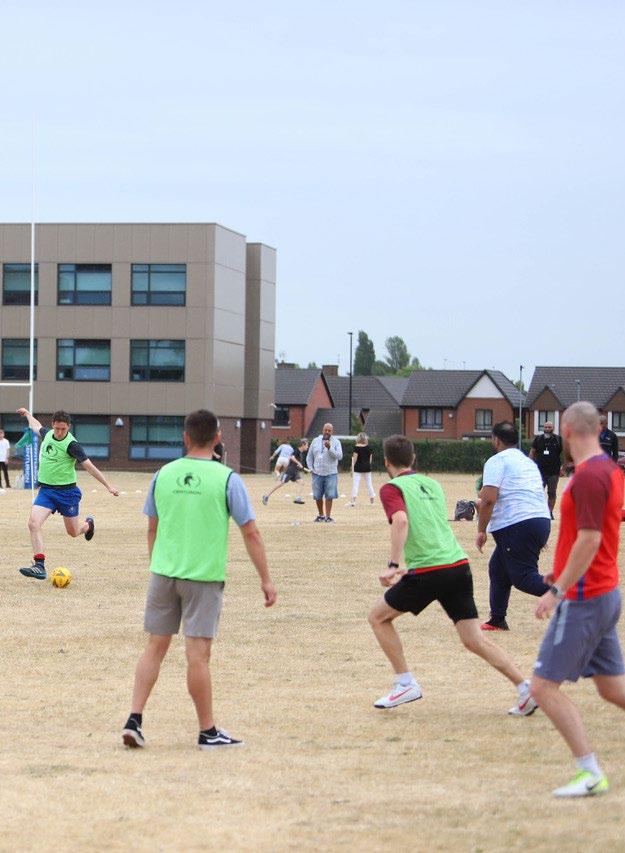
Focus on Early Career Teachers (ECTs).
•ECTs receive high-quality mentoring, coaching and CPD.
•Ceri Boyle to attend Teaching School Hub (TSH) ECT development group.

•Richard Fletcher and Vicky Marks to attend the Teaching School Hub (TSH) strategic group.
•ECTs receive a high-quality experience, developed their expertise accordingly and have been retained within the Trust.
Ensure the personal professional learning plans (as part of the APR process) become part of everyday culture.
•Build in dedicated time for self-reflection and one to one meetings with line managers.
•Utilise the newly appointed Instructional Coaches to develop and support teachers at all levels.
• Staff utilised allocated CPD time to reflect on their professional learning plan.
•Instructional coaches to participate in a two-day residential led by the Trust Teaching for Learning lead, Stuart Nash, in preparation for September 2022 delivery.

•Trust and college CPD timetable sessions are aligned and are successfully used by staff for CPD and APR reflections.
•NCLT remain an active member of the TSHs.
•Improved participation levels of staff taking the NPQs available.
•Ensure all CPD offered balances the need for both subject knowledge and evidence-based pedagogy.
•Continue to work closely with the TSHs to access the best external CPD available.
•Principals, TfL leads, HR and Stuart Nash to work together to plan each institutions’ annual CPD offer.
•Ceri Boyle, Richard Fletcher, Vicky Marks to attend regular TSH meetings, ensuring trust staff receive all the opportunities presented by the hubs.
•Trust ECT, ITT, NPQ lead in post and working closely with individual institution leads.
•The uptake of teachers requesting a coach is strong.
•The impact of the instructional coaches is measurable.
Continue to develop subject collaboration across the Trust to aid teacher development.
•Each individual timetable has a dedicated CPD slot aligned to allow collaboration to take place.
•Continue to develop the role of the Trust Collaboration Leads in order to ensure all cross-Trust collaborative activities are high-quality.
•Trust Collaboration Leads to continue to ensure programmes of study and assessments are aligned and that regular moderation takes place.
•Ensure pre and post-16 subjects get the opportunity to collaborate.
•Trust CPD period allocated in the three colleges.
•Helen Jackson/Chelsea Branson-Webster to lead the Trust Collaboration Leads.

Ensure all employees and stakeholders are aligned with the leadership of the Trust and they are clear about the purpose, vision and values.
•Ensure the vision and values of the Trust are embedded into the day-to-day culture via newsletters, staff briefings, signage, presentations and most importantly actions.
•Build on the governors’ training day that took place at the beginning of academic year 21/22.
•Majority of staff and governors have an improved knowledge of the Trust vision and values and can articulate them well.
•All staff are able to articulate the vision and values of the Trust.
•Governors can explicitly identify the strategic priorities and are fully au fait with the Trust vision and values.
Encourage more employees to get involved in staff voice activities to have their say and influence decisions.
•Increase the number of staff volunteering to be part of the staff voice groups.
•Ensure the meetings continue to take place termly and have clear actions recorded.
•Continue to carry out staff surveys in order to assess levels of employee engagement and respond proactively to areas of concern.
•CEO/HR director attend meetings where possible.
•Review the success of the staff voice group.
•Staff voice meetings are well embedded and seen as the go-to place for staff to engage in consultation with leaders and contribute to overall decisionmaking.

•Improved staff survey results.
To identify succession candidates as part of a wider plan.
•Devise a plan which focuses on replacing key roles in the organisation if they were to leave.
•Hold high-quality conversations as part of the APR process, balancing objective data and human sensitivities of discussing peoples’ careers.
•Invest significant time in prioritising individual career development needs.
•Continue to identify talented staff for professional development such as the NPQs.
•Where possible, provide identified candidates with authentic opportunities to experience elements of future roles.
Implementation Outcomes (How well?)
•Identification of talented staff and the necessary development plans put in place.
•Internal staff identified and in a strong position to apply for promoted roles.
Final Outcomes (And so?)
•Increased opportunities provided for identified staff to further develop their skills and expertise in the specified area.
•Future leadership roles successfully filled internally.

Further develop a rich, collaborative culture, where learning from each other becomes the norm.
•Ensure time is built in to the timetable to allow subject collaboration meetings to take place on a regular basis.
•Facilitate links between subject staff pre-16 and post-16 to aid student transition.
•Encourage staff to regularly observe each other through learning walks and the Trust’s open-door policy.
•Foster a continuous improvement environment to help staff develop via instructional coaching.
• Staff utilised allocated CPD time successfully to collaborate, plan PoS and assessments and share resources and expertise.
• Richard Fletcher and Claire Wilkins to ensure cross-phase CPD meetings are successfully arranged and take place.
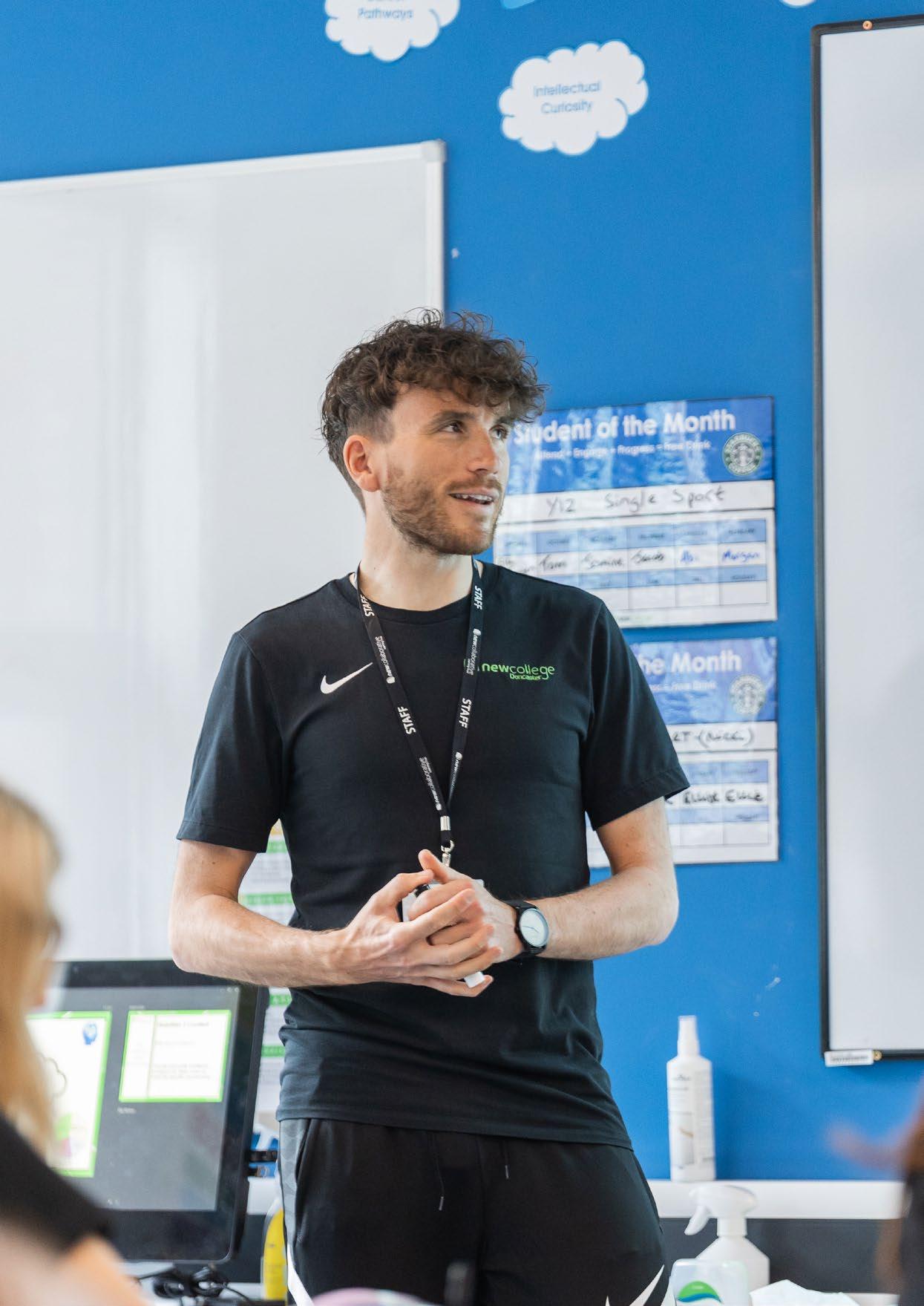
•Staff begin to explicitly ask to observe other teachers as part of their professional learning plan.
•Improved staff engagement and buy-in into all subject collaboration meetings.
•Increased number of cross-phase meetings take place, building on last academic year.
•An increased number of cross-phase teaching observations take place.
•An increased number of staff requests to have an instructional coach are generated.
Prioritise staff mental health.
•Tackle mental health stigma and promote an open, understanding culture.
•Manage staff absence in a supportive manner giving the same consideration to mental health as physical health.
•Fulfil our legal duty to minimise the risks associated with work-related stress.
•Ensure staff have access to mental health support by the Health Assured EAP.
•Staff experience a growing confidence in being able to talk about mental health concerns.
•HR to continue to support any mental health related absences in a sensitive manner.
•Staff are well aware of the Health Assured app and are confident using it when needed.
• Increase levels of mental health support for staff.
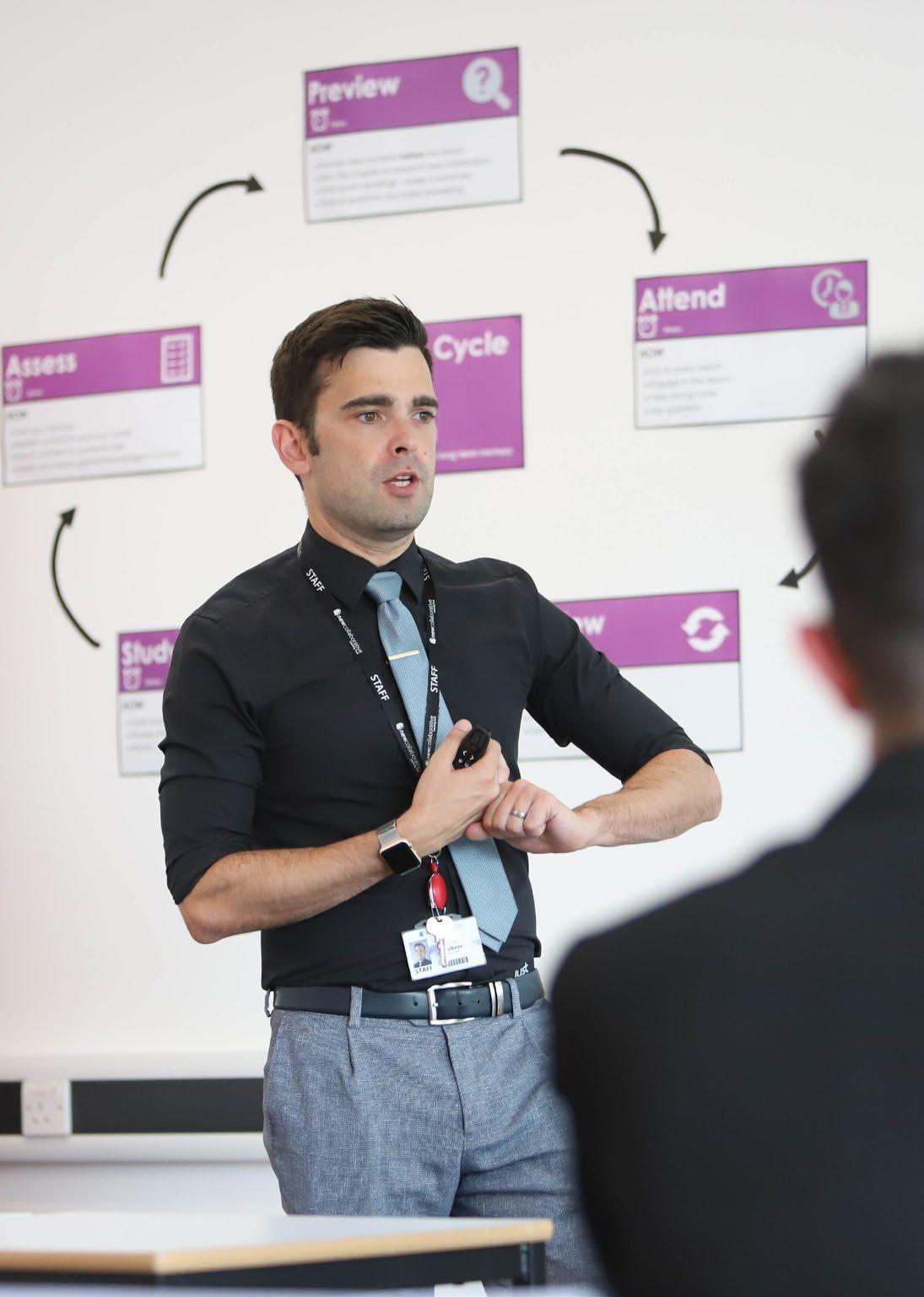
Prioritise staff wellbeing.
•Give staff the support they need to take responsibility for their own and other peoples’ wellbeing.
•Encourage staff to maintain a healthy work-life balance and promote the benefits of doing so.
•Arrange optional wellbeing activities within the working week for staff to get involved with wellbeing.
•Send out staff wellbeing pulse surveys, in addition to the annual whole staff survey to gain feedback at timely occasions throughout the year.
•Appoint a staff wellbeing coordinator to promote and organise wellbeing activities.
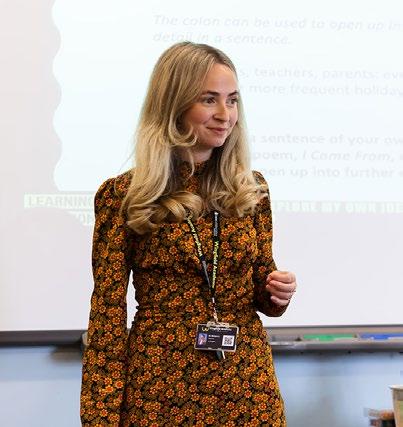
•Increase number of wellbeing activities arranged.
•Staff begin to understand the benefits of a worklife balance and physical activity.
•Appointment of wellbeing coordinator.
•Increase staff involvement in wellbeing activities in and outside of work.
Establish an out-of-hours communication policy.
•Provide clear guidance to all stakeholders on remote and out-of-hours working including when it is and isn’t reasonable to expect staff to respond to queries or emails.
•Promote the importance of a work-life balance that will not prevent staff accessing emails at unsociable hours if it suits them personally.
• Arrange meetings within normal working hours unless a suitable time cannot be allocated. The Trust recognises that meetings may need to take place outside of normal working hours by mutual agreement.
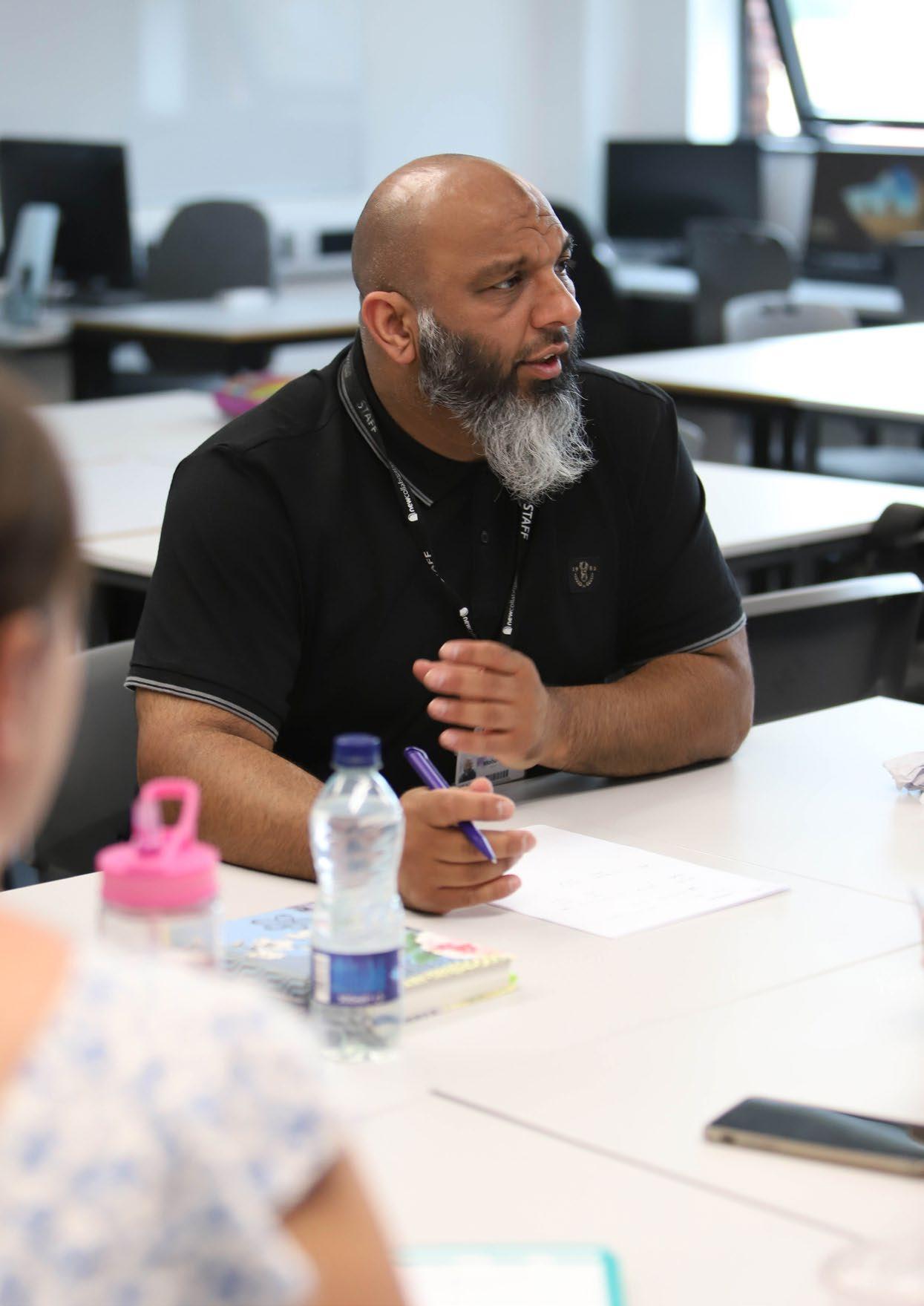
•Introduce Sharepoint as a communication tool to further reduce emails.
•Fewer meetings arranged out of hours.
•All staff recognise the importance of work-life balance and a change in mindset is evident.
•Ensure all staff use the appropriate email signature to promote the importance of not emailing out of hours.
•Reduce number of communications that take place out of work hours.
•Reduce number of emails in work-time.

Give staff a voice in decision-making.
•Hold staff voice group meetings where staff can request agenda items.
•Respond accordingly to any staff suggestions providing a clear explanation of any decisions.
•Carry out comprehensive annual staff surveys to gauge staff views.
• Embed the trade union recognition recognition agreement to further engage with stakeholders outside of the Trust.
•Offer an open-door policy for staff to meet with SLT/Trust leaders to discuss any concerns or share ideas they may have.
•Involve staff with any significant fundamental changes to policies procedures and structures.
•Staff are aware of the mechanisms to voice their views to SLT and actively use the staff voice group to do so.

•Increase staff involvement in decision-making.
•The trade union agreement is successfully established.
•Improved staff survey results.
•Sustained strong staff survey results.
Drive down unnecessary workload.
•Review practises and procedures to proactively drive down unnecessary workload.
•Provide a clear rationale when introducing any new initiatives that may impact negatively on workload.
•Provide CPD to highlight efficient and effective ways of marking in order to reduce workload.
•Regularly review and update the Trust Employee Health and Wellbeing policy that includes a section on reducing staff workload.
•Staff recognise the Trust’s efforts to reduce workload.

•Workload remains high on staff voice group agenda.
•Workload is successfully reduced.

Champion flexible working and diversity.
•Continue to review and implement a policy on special leave and to consider how the Trust can support our staff in those situations when flexibility is necessary.
•Fully consider all formal requests for flexible working having regard for balancing the preference of the staff member and the needs of the organisation, endeavouring to seek workable solutions wherever possible. Include annual promotion of the flexible working policy.
•Continue to offer opportunities for staff to voluntarily accrue additional hours for supporting events which can then be taken as time off in lieu creating flexibility to book time off in lieu, which is rare in our setting.
•Where appropriate, advertise flexible working in relevant job adverts.
•As Leaders in Diversity, continue our journey of continuous improvement of equality and diversity related issues.
•Create a culture where diversity is openly talked about and provide staff with the relevant training and awareness-raising opportunities/ events with a view to increasing understanding, eliminating discrimination, advancing equality of opportunity and promoting inclusion.
•Monitor the diversity of our student and staff community and take action to address any underrepresentation in relation to ensuring our internal Trust communities are representative of the external communities we serve.
•Continue to take a zero tolerance policy to all acts of discrimination, ensuring our Trust policies are implemented and the benefits of diversity are regularly communicated.
•Retain Disability Confident Level 3 Leader award.
•Staff recognise that the Trust will consider flexible working requests if it works for the organisation.
•Increased awareness from staff and students relating to all diversity issues.
•Staff proactively plan lessons and create resources that promote diversity throughout the programme of study.
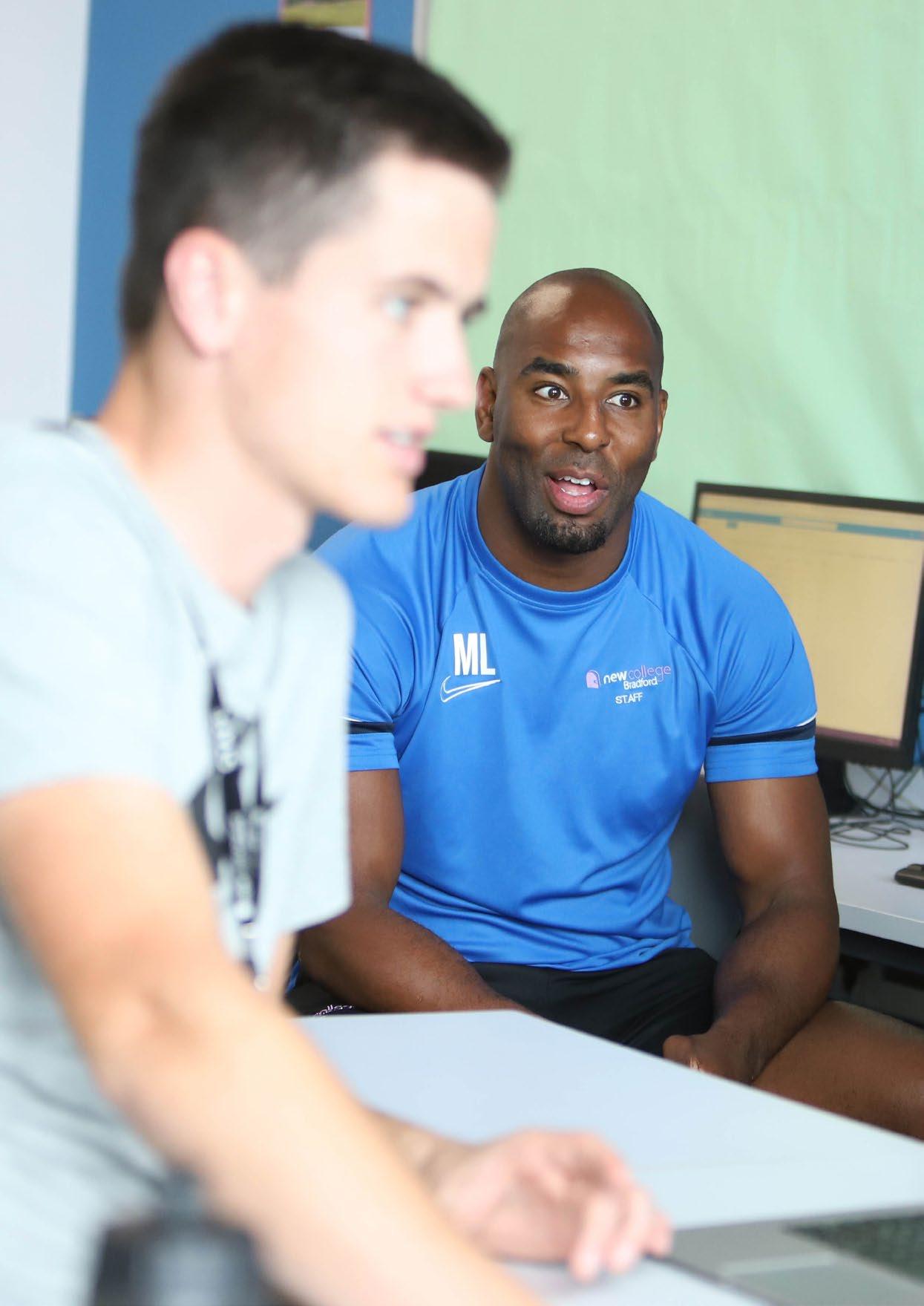

•An increased number of flexible working requests are considered and approved where appropriate.
•Successful achievement of Leaders in Diversity award reassessment.
•Trust recognised in the top 100 index by the National Diversity Centre.

Support staff to progress in their careers.
•Provide opportunities for varied professional development through regular organised internal CPD sessions, informal internal coaching, collaboration opportunities, external training courses, apprenticeships and access to other professional qualifications.

•Include targets for professional development in annual performance reviews as well as actions towards supporting department/school/college targets.
•Create opportunities for internal promotion and/or additional responsibility positions for staff to choose to apply for in order to further their own development.
•Create a culture where staff are encouraged to bring new ideas and suggestions and take calculated risks with a view to improving their own performance.
•Staff begin to fully utilise the allocated CPD slots for their personal development.
•Increase numbers of internal staff applying for Trust vacancies.
•Increase number of internal promotions via targeted succession planning.
•The APR process is fundamental to improving staff development.
•An increased number of staff participating in NPQs offered by the TSH.
Create an outstanding behaviour culture.
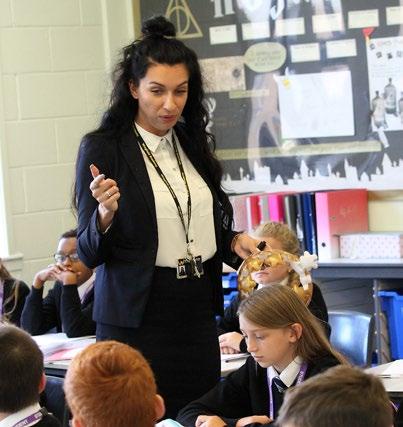
•Work with staff and students to maintain the highest standards of behaviour by the implementation of a college/academy-wide behaviour policy.
•Ensure staff and students have a shared understanding of how outstanding behaviour is encouraged and rewarded, including the sanctions that will be imposed if behaviour falls below these expectations.
•Support leaders and teachers to create a learning environment that is calm, safe and inspiring.
•Wingfield apply to the DFE to become a Behaviour Hub.
•Leaders and teachers set high expectations for behaviour.
•Successful application to become a Behaviour Hub.
•Student behaviour across the Trust is exemplary.
•Wingfield demonstrates impact on a national scale.
Members, directors, advisors and both the Audit Committee and Education Standards Committee are an integral aspect of NCLT. How we recruit and retain governors, how we prioritise development, and how we succession plan is always high on the agenda for the Trust Governance Manager, governance professional, CEO and the Chair of the Board of Directors.
Please see below how we ensure governors are an important group when it comes to delivery of our People Strategy:
• The Trust drives best practice in recruitment and retention and encourages a diversity of volunteers on the Governing Board.
• The Trust promotes the 7 principles of public life in the recruitment process and robustly supports candidates that have a clear understanding of:

Selflessness – to act solely in terms of the public interest.
Integrity – to not act or take decisions in order to gain financial or other material benefits for themselves, their family, or their friends and to declare and resolve any interests and relationships. Objectivity – to act and take decisions impartially, fairly and on merit, using the best evidence and without discrimination or bias.
Accountability – to be accountable to the public for their decisions and actions
Openness – to act and take decisions in an open and transparent manner.
Honesty – to be truthful.
Leadership – to promote and robustly support the principles and be willing to challenge poor behaviour wherever it occurs.
• The Trust is committed to a comprehensive induction process for governors, trustees and chairs to ensure a professional onboarding experience.
• Governance members receive regular bespoke CPD programmes and internal\external training.
• Comprehensive induction guides are available to all members, providing an essential reference point.
• The governance professional ensures that ongoing training for governors and trustees is maintained, recorded and planned in keeping with the individual’s strengths and weaknesses and accounts for any committees they sit on. The training also ensures all governors are fully up to speed with the latest Keeping Children Safe in Education (KCSIE) guidelines.
• The Trust encourages mentoring amongst the Governance Board which has a positive impact on outcomes, performance and shared knowledge amongst all members.
• The Trust has established a culture of succession – with ongoing, honest discussions about succession planning and modelling of good practice by current chairs.
• The Trust is committed to ensuring continuity within the organisation by having the right people in the right place at the right time by planning future leadership, which includes chairs, vice-chairs, advisors and committee members.







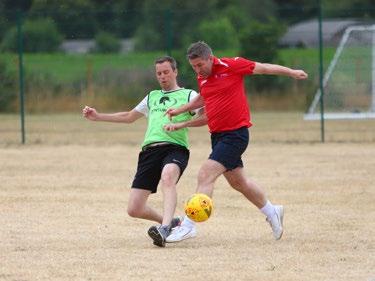















Park Lane, Pontefract, WF8 4QR
Phone: 01977 702139 Email: info@nclt.ac.uk nclt.ac.uk